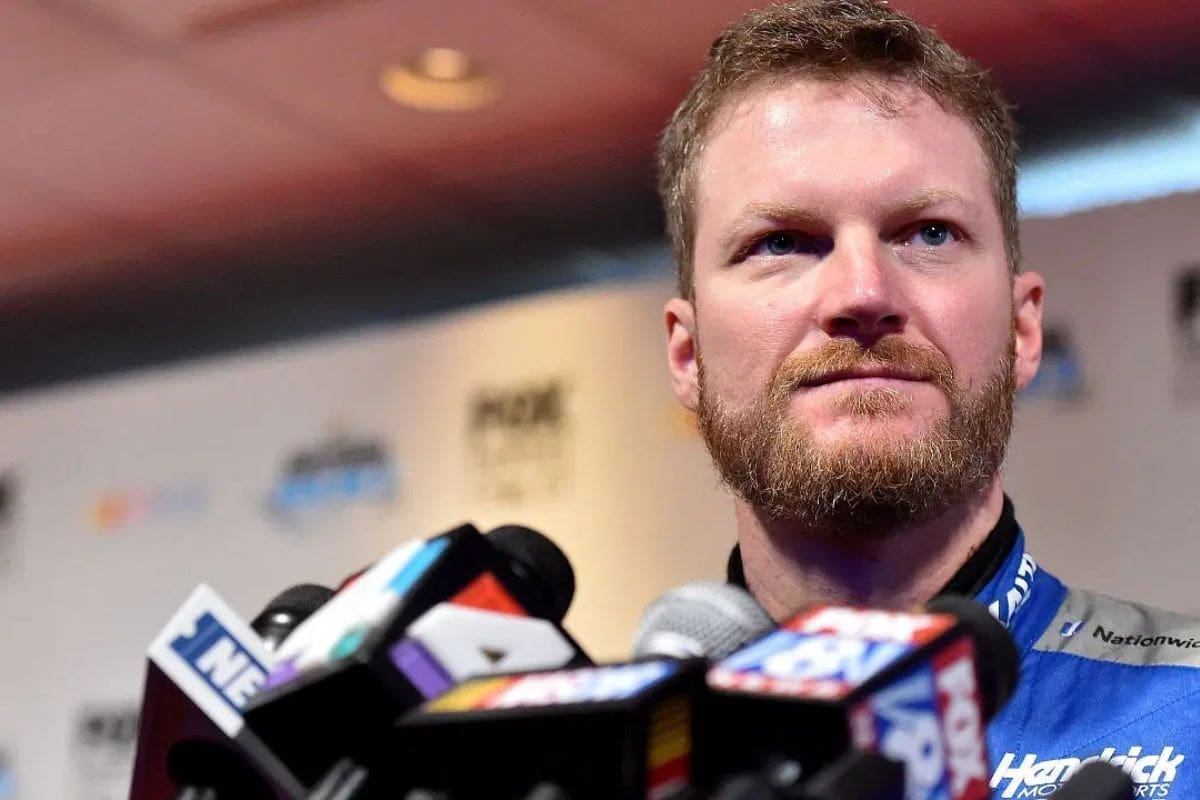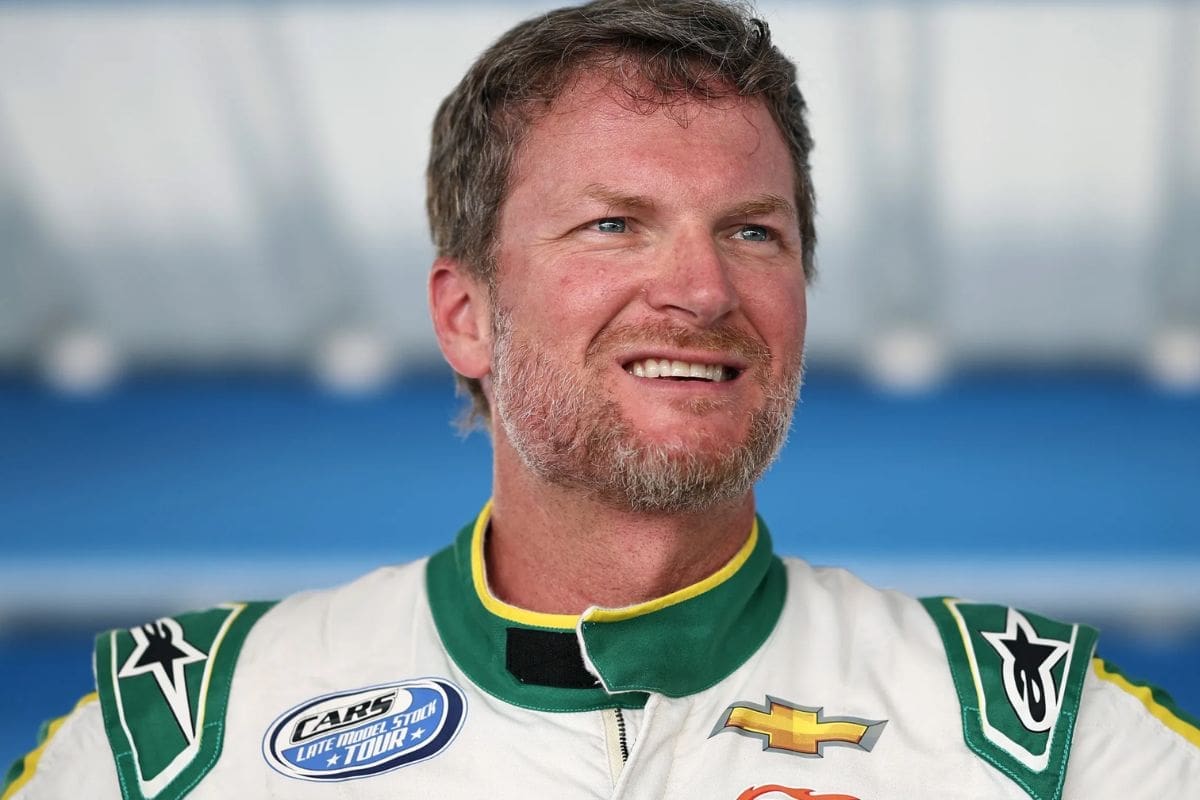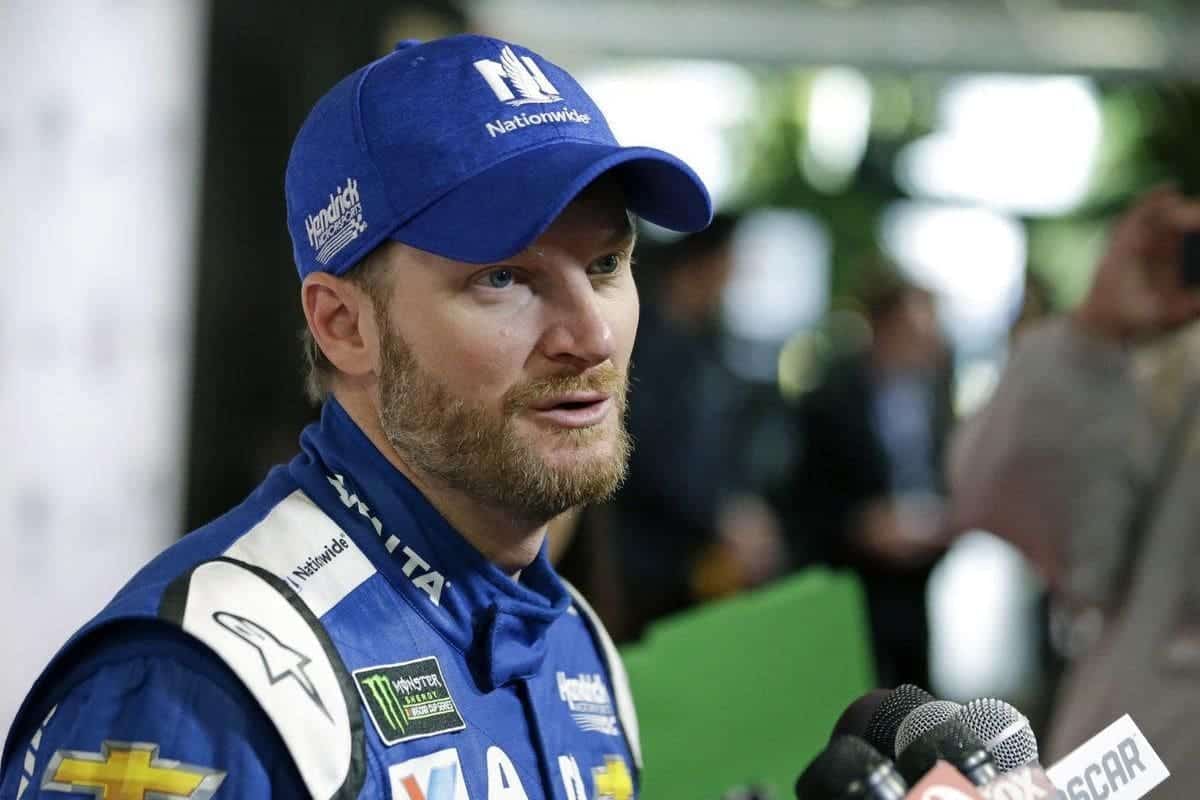Dale Jr’s Regret Over Charter Ownership: Dale Earnhardt Jr.’s recent reflection on not purchasing a NASCAR Cup Series charter when the prices were substantially lower encapsulates a critical turning point in the sport’s business dynamics. His hindsight regret highlights not only a personal missed financial strategy but also emphasizes a broader theme in NASCAR’s evolving economic landscape, where timing and foresight are crucial. As a figure deeply rooted in racing’s heritage, Earnhardt’s perspective on ownership opens a wider discussion on the challenges and successes of team management within the sport.
Key Takeaways
- Dale Earnhardt Jr. regrets not buying a NASCAR Cup Series charter when prices were lower.
- He missed the opportunity to acquire a charter through DEI, affecting his legacy.
- His frustration stems from current high market prices making charter acquisition difficult.
- Owning a charter would have given him strategic control over team operations and branding.
- Earnhardt Jr. is concerned about the financial barriers limiting new entrants into NASCAR.
Dale Earnhardt Jr’s Regret Over Charter Ownership
Dale Earnhardt Jr., the celebrated owner of JR Motorsports, has openly expressed his regret over not securing a Cup Series charter at a time when their prices were substantially more affordable. This candid admission shows a strategic misstep in the trajectory of JR Motorsports, reflecting the dynamic and often unpredictable nature of motorsports management. Earnhardt Jr.’s realization highlights not only a missed financial opportunity but also emphasizes the importance of timing and foresight in the competitive racing industry.
“Look, man,” Dale jr. said “I’m frustrated that I… I don’t know, it’s tough. I wish I had been smart enough to buy a charter when they were cheaper. That’s the first thing I want to say because I know anything I say after this, people are gonna go, ‘Well, you had a shot, you had the chance. You missed your chance, bud. It’s over.’ And I did.”
The escalation in charter costs over recent years is a critical factor that has transformed the financial landscape of NASCAR. Charters, which guarantee entry into Cup Series races, have become pivotal assets, coveted for their operational security and financial advantages. Earnhardt Jr.’s regret is rooted in the exponential appreciation of these assets, a trend that was perhaps not fully anticipated during the earlier, more affordable periods.
Challenges in Acquiring a Charter
Exploring the intricate terrain of NASCAR’s charter system, team owner Dale Earnhardt Jr. faces significant hurdles due to the heightened market prices of these necessary assets. The charter system, designed to provide teams with financial stability and guaranteed race entries, has inadvertently created a competitive and costly marketplace where acquiring a charter is strategic and challenging.
Dale Jr.’s frustration stems from the escalating costs associated with these charters. Originally intended as a safeguard for teams to guarantee their participation and investment, the market dynamics have shifted, placing a premium on these charters. The increased demand has inflated prices, making it challenging for new or expanding teams to enter or scale within the sport without substantial financial backing.
“There’s no way at the current selling price that I personally am gonna go out and buy a charter myself.”
“If I had a charter today, I would want that. If I owned a charter and had one right now on this table, I would want to own it forever.”-dale jr.
This financial barrier poses a particular problem for someone like Earnhardt Jr., who, despite his legacy and influence in the sport, finds the economics of charter acquisition intimidating. The high cost is not just a reflection of the market but a barrier to diversity and competition within NASCAR. It limits the entry of new talent and ideas, which are important for the sport’s evolution and sustainability.
Moreover, the negotiation process itself is complex, involving different stakeholders including existing charter owners, potential buyers, and NASCAR officials. Each party has significant interests, which often complicates and prolongs discussions, adding difficulty for prospective charter buyers like Earnhardt Jr.
Missed Opportunity with Dale Earnhardt Inc. (DEI)
Reflecting on the missed opportunity to secure a future in NASCAR’s competitive arena, Dale Earnhardt Jr. deeply regrets not acquiring a charter through Dale Earnhardt Inc., a team founded by his late father and envisioned as his legacy platform. This reflection brings into focus the intricate dynamics and substantial potential that were inherent in DEI, highlighting a crucial moment in the history of motorsports where personal ambitions and familial legacies intertwined.
“In my mind, I lost all confidence in this becoming what Dad wanted it to be when he died. We could try. But I just knew without him here to help us keep that vision heading that direction, we just weren’t going to hit that target.”-dale jr.
The decision to leave DEI was driven by internal conflicts and a diverging vision for the team’s future, which ultimately led Dale Jr. away from an institution that could have been a monumental foundation for his racing career and business aspirations.
- Legacy and Leadership: Dale Jr. could have inherited not just a team, but a legacy built by one of the sport’s icons.
- Crucial Advantage: Ownership would have offered strategic control over racing operations and team development.
- Elevate: Utilizing the Earnhardt name within DEI could have significantly enhanced the team’s branding and sponsorship opportunities.
- Personal Fulfillment: Owning DEI might have fulfilled a personal and emotional objective for Dale Jr., deepening his connection to his father’s legacy.
Doubts About NASCAR’s Future
Amidst personal reflections on missed opportunities with DEI, Dale Earnhardt Jr. also harbors significant concerns about NASCAR’s evolving landscape, particularly the escalating financial hurdles confronting prospective team owners. The steep rise in operational costs and the complex economic dynamics of the sport present a formidable barrier to entry.
Dale Jr.’s apprehensions are rooted in the observation that the rapid changes within NASCAR—marked by increased sponsorship demands and heightened technological investments—might be outpacing the ability of new teams to adapt effectively. This creates a paradoxical situation where, despite NASCAR’s intent to expand and modernize, the actual competitive field may narrow, dominated by those with deep financial reservoirs and established infrastructures.
.@RayEvernham and @DaleJr chat about the current NASCAR charter climate 🎟️
📺 https://t.co/ue9tGjaEs2 pic.twitter.com/T9GOqtWzJC
— Dirty Mo Media (@DirtyMoMedia) February 22, 2024
Junior’s Gloomy Outlook on NASCAR’s Future
Dale Earnhardt Jr.’s concerns about NASCAR’s future are deeply rooted in the escalating financial barriers that threaten the sustainability and diversity of team ownership. Viewing the sport through the lens of his extensive experience both on and off the racetrack, Earnhardt Jr. critiques the rapid financial escalations as potentially marginalizing new and diverse ownership, which is essential for the sport’s vitality and relatability to a broader audience.
“I’m also a traditionalist in that I am nervous and apprehensive about the direction that we’re going, where the barrier of entry for somebody to compete at this level as an owner is going to be more challenging, financially, maybe, right?”
“Hey man, I’d like to see that happen at a nice slow pace. All of the change that is coming in, I’m just fighting against some of that internally.”-dale jr.
- Cost Inflation: Rapid increase in operational and entry costs, making it prohibitive for new teams to enter the sport.
- Diversity Impediment: High costs potentially prevent a diverse range of team owners, which is important for broadening NASCAR’s appeal.
- Long-term Viability: Concerns that financial barriers might deter potential team owners, affecting the sport’s growth and sustainability.
- Competitive Balance: Fear that only well-funded teams can afford to compete, leading to a less competitive field.
News in Brief: Dale Jr’s Regret Over Charter Ownership
Dale Earnhardt Jr.’s lament over not securing a NASCAR Cup Series charter highlights a crucial misstep in capitalizing on strategic opportunities within the racing industry. The escalating costs and limited availability of charters intensify the complexity of entering team ownership at a competitive level. This scenario demonstrates the vital importance of timely decision-making in sports management and the potential long-term consequences of missed opportunities on legacy and business operations in professional motorsports.
Our Reader’s Queries
Q. Why did they call Dale Mr. restrictor plate?
A. Earnhardt’s prowess in the tight, close-drafting, pack racing, a style he famously detested, earned him the moniker “Mr. Restrictor Plate.”
Q. Who is the majority owner of JR Motorsports?
A. Now in its 22nd year of operation, JR Motorsports stands as a premier professional race team. Co-owned by NASCAR Hall of Fame inductee and 15-time Most Popular Driver Dale Earnhardt Jr., along with Kelley Earnhardt Miller and NASCAR Hall of Famer Rick Hendrick, the team continues to make waves in the racing world.
Q. What companies does Dale Earnhardt Jr. own?
A. JR Motorsports, the professional race team, is under the ownership of Dale Earnhardt Jr., a prominent figure in the racing community.
ALSO READ: Dale Earnhardt Jr.’s Secret Battle: Why Can’t He Enjoy a Day Off?




